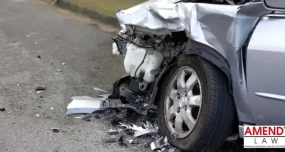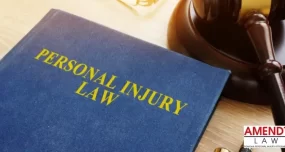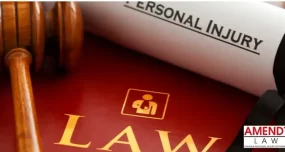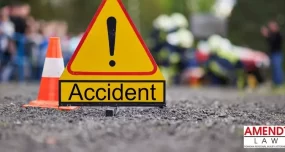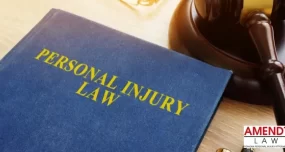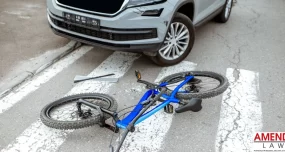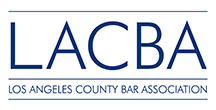Call Us : (909)-766-1994
Blog
Pomona Personal Injury Law Blog
How Is Fault Determined in Pedestrian Accident Cases in California?
The streets of California in cities like Los Angeles are often busy at all times of the day and night, both with vehicles and pedestrians.…
Is California a No-Fault Car Accident State?
“Is California a no-fault car accident state?” is a question many drivers ask after being involved in a crash. Many are surprised to learn that…
What to Do if Your Insurance Claim Is Denied in Personal Injury Cases in California
After an incident occurs, victims need to know that they’re covered by their insurance. Even though we pay these companies to help us when we…
How to Document Evidence After a Car Accident in California?
The actions you take after a car accident will be instrumental in determining the finer details of your case. It’s important to document as much…
How to Calculate Pain and Suffering in Wrongful Death Cases in California?
When someone dies due to the negligence of another, the law permits recovery for non-economic damages such as mental and emotional distress, loss of society…
What Is the Process for Consulting a Personal Injury Lawyer in California?
If you are injured due to another’s misconduct or negligence, you may be entitled to compensation. In order to get it, however, you must be…
How To Prove Fault in a Personal Injury Case in California?
When you experience an injury due to another party’s actions, it can have traumatic effects both mentally and physically. State laws can be complex, making…
Average Wrongful Death Settlement in Pomona, CA
Few incidents in your life can be as painful, personal, and overwhelming as suffering a wrongful death. Losing a loved one is always painful, but…
How Much Does It Cost to Hire a Car Accident Lawyer in Pomona?
Being involved in a car accident can be a particularly traumatic event, especially if it results in serious, life-changing injuries for you. You may not…
How Long Does It Take to Settle a Truck Accident Case in Pomona?
Being involved in a truck accident can be one of the most terrifying and physically damaging events of your life. Following the accident, you may…
Common Types of Personal Injury Claims in California
Whether it’s a car crash on a busy highway, a slip-and-fall in a grocery store, or an injury caused by a defective product, victims of…
How Much Does a Personal Injury Lawyer Cost in California?
Following a personal injury, paying for legal representation may seem like one more financial obstacle you have to deal with on your path toward justice…
What Happens If the Person at Fault in An Accident Has No Insurance in California?
Have you ever wondered what happens if the person at fault in an accident has no insurance in California? While driving without insurance is illegal…
Average Personal Injury Settlement in California
The aftermath of a personal injury can leave you with mounting medical bills, lost wages, and uncertainty about your future finances. Under the state’s personal…
California Car Accident Statistics
California car accident statistics are ever-changing. As time passes, our methods of transportation change; for example, rideshare options have become increasingly popular. The state is…
California Personal Injury Statute of Limitations
Have you ever wondered what the California personal injury statute of limitations is? The statute of limitations refers to the timeframe you have to sue…
California Car Accident Laws – All You Need to Know
California uses a fault-based system where minimum liability limits increased on January 1, 2025, to $30,000 for single injuries and $15,000 for property damage. Under…
Challenge Course Held Liable Despite Signed Waiver at Recreational Adventure Course
In a notable case handled by Los Angeles personal injury attorney Christian Amendt, a woman was severely injured during an accident at a recreational challenge…
How To Obtain a Copy of Your Traffic Collision Report in Los Angeles?
Traffic collisions can be stressful and chaotic, often leaving those involved feeling overwhelmed and uncertain about what to do next. Knowing how to respond appropriately…
What To Do After a Bicycle Accident in Los Angeles?
Los Angeles is known for many things, and an abundance of people is certainly one of them. Whether on the way to work or just…


